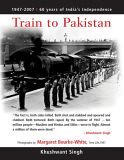 Keeping Corner Kashmira Sheth
Keeping Corner Kashmira ShethRemember The Edge of the Forest? I still have a few reviews that ran in that wonderful magazine that I'm reprinting here...
Leela was engaged at the age of two and married at the age of nine. Next year, when she turns thirteen, she will celebrate her anu and move into her husband’s house. Leela’s excited for her anu but when her husband is suddenly killed, everything changes.
Following Brahmin custom, Leela is forced to shave her hair, smash her bangles, and wear muddy brown saris. She will be unable to remarry and must keep corner—stay in the house—for a full year. Leela’s family is devastated by her loss and their grief permeates the household, making it impossible for Leela to imagine any sort of future.
But India is changing. Gandhi is leading the people to stand up to the English. Leela wonders how a small, old man in a dhoti can change the white men who sit so straight on their horses, but Gandhi is. Confined to the house, Leela is still caught in a struggle between the old and new as India stands on the brink of liberation—both from the English and from tradition.
Based on the true story of her great-aunt, Sheth paints a lush, vibrant picture of Indian home life. Leela’s story moves with the weather and seasons as she marks off her time before being allowed outside. Moving and honest, Leela’s tale of drawing inspiration from Gandhi to find agency in her own life is sure to strike readers and linger long after the last page.
ARC Provided by... a coworker, who picked it up at ALA (maybe? this ran back in 2007-- I don't quite remember)
Links to Amazon are an affiliate link. You can help support Biblio File by purchasing any item (not just the one linked to!) through these links. Read my full disclosure statement.









